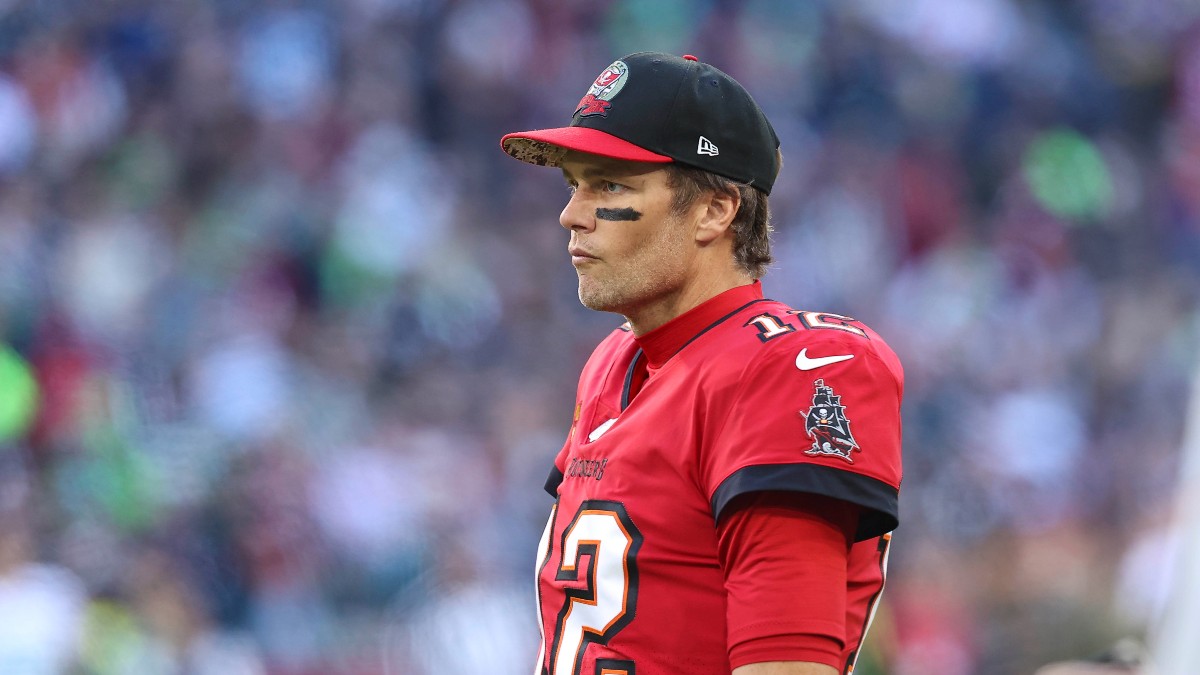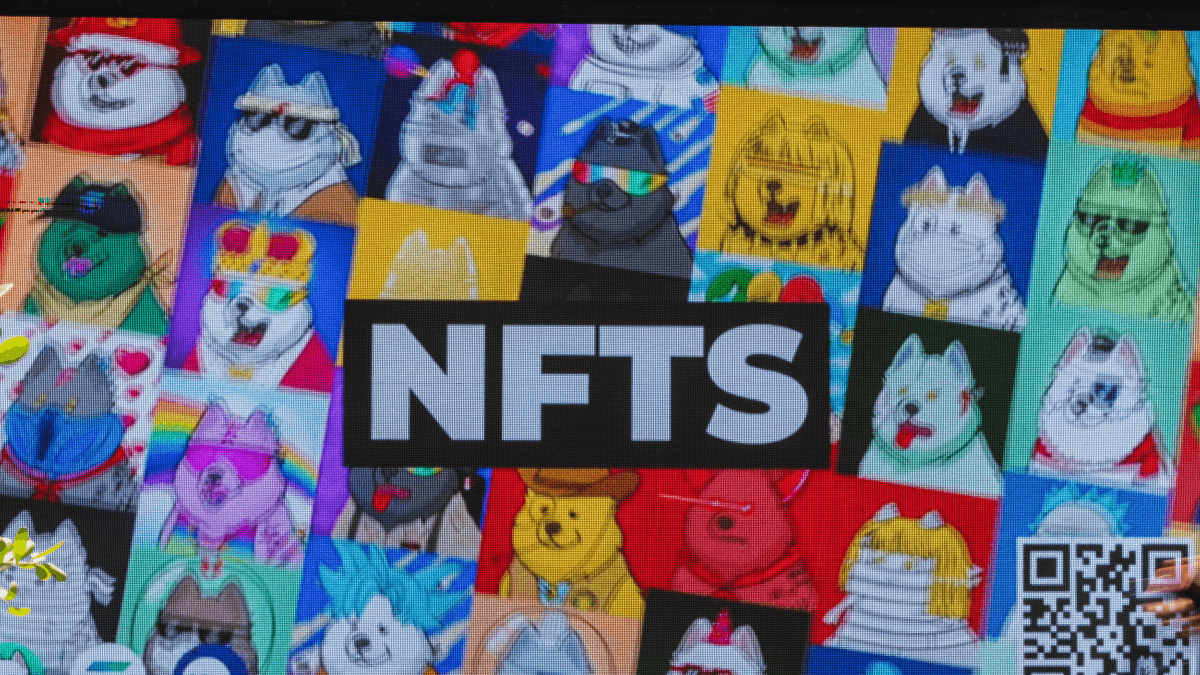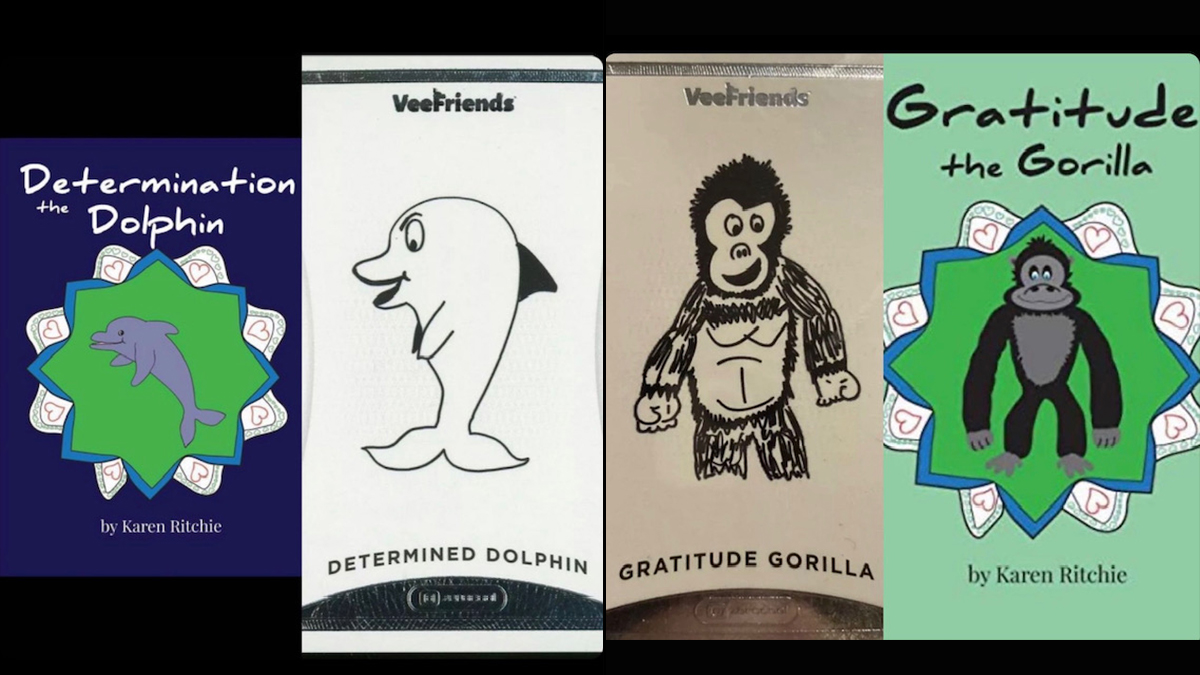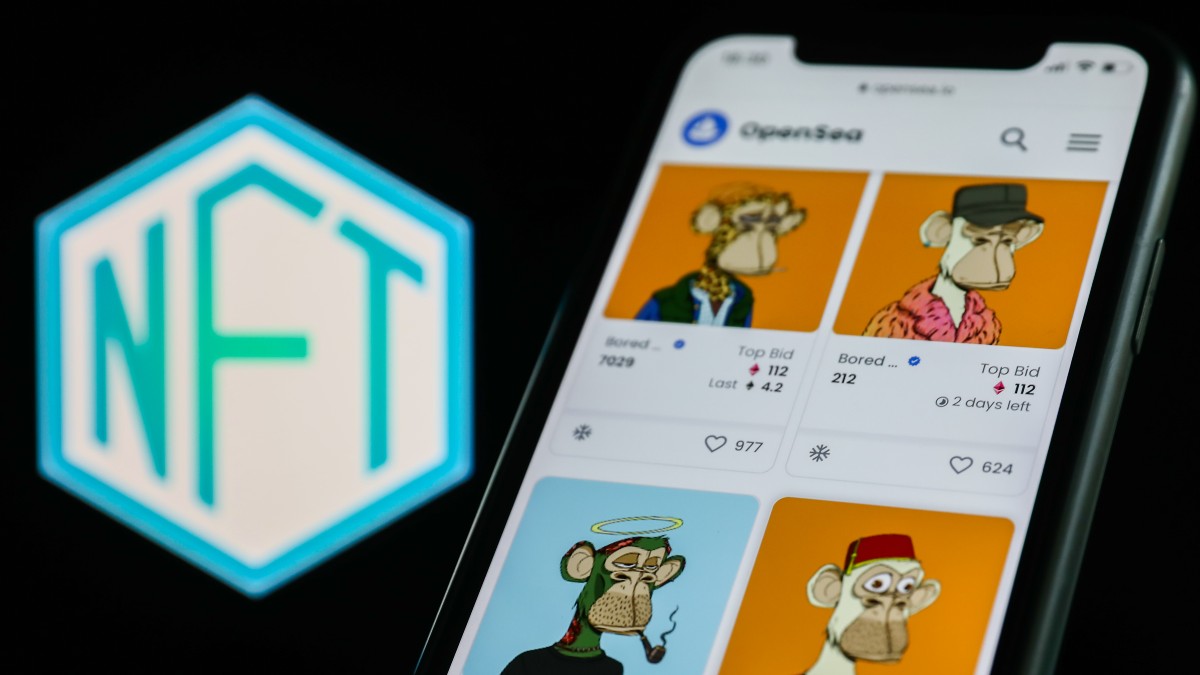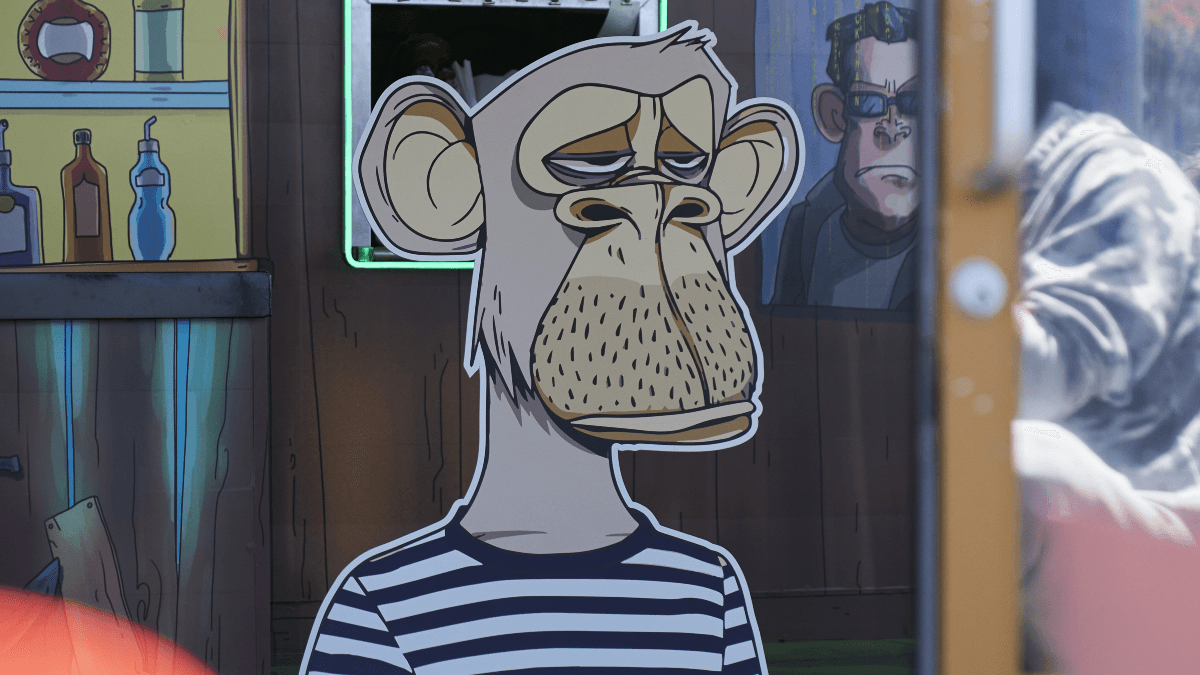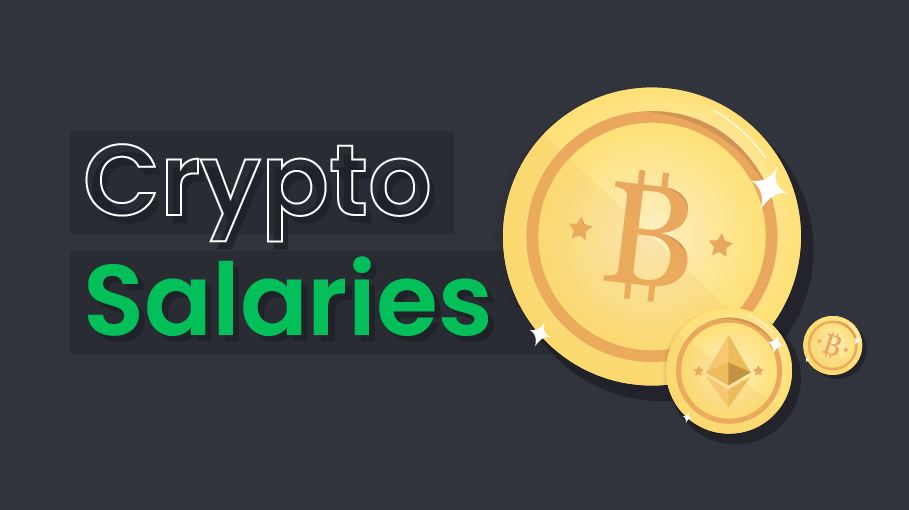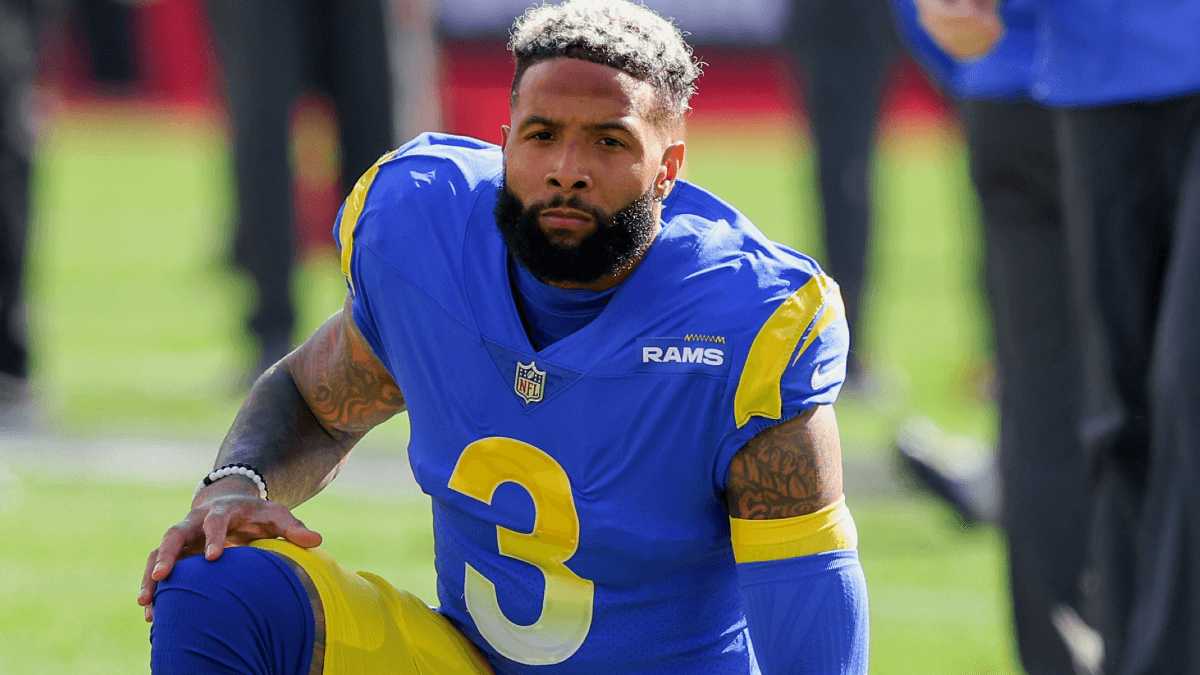I bought my first cryptoasset—Ethereum—in early 2017. I’d like to say I did all kinds of research and weighed the pros and cons to make a well-informed decision, but I didn’t. People I respect in the gambling community had been talking about it a lot, so I just bought some. I honestly could have just as easily waited months, but I had time one day and got in.
Check out the evolution of Ethereum’s price over the past 14 months:
Jan. 1: $8.24
Feb. 1: $10.62
March 1: $16.80
April 1: $50.85
May 1: $76.92
June 1: $225.80
Today (Feb. 21): $874.00
If you bought $10,000 worth of ETH on Jan. 1 of last year, it would have been worth $274,000 by June 1 and $1.06M today. I don’t think even the most bullish investors saw that type of return on the horizon, and so the difference in ROI you would have seen from a decision to buy ETH on Jan. 1 as opposed to waiting a few months was mostly a matter of luck. Well, at least that's the case for me. Put another way: If you had told me on March 1 that I could either invest $10K into ETH or not be allowed to do it for a month and just be handed $10K, I obviously would have taken the free money (which would have turned out to be less than ETH gains during that time).
That isn’t to say that I or anyone else who got into crypto “early” got completely lucky. (I put early in quotes because I wasn’t truly early, or I probably wouldn’t be writing this in bed sitting next to a week-old bowl of soup and empty bags of Jack Link’s and Lay’s Sour Cream & Onion chips.) Just that there’s lots of luck involved in every aspect of life, and certainly in complex markets.
It would be foolish to minimize the role of variance in the buying/selling/trading of cryptoassets in the same way it’s foolish to minimize the role of variance in sports outcomes. We can make educated guesses, but failing to recognize the inherent uncertainty and randomness in any facet of investing leads to overconfidence — a trait I believe is the single most detrimental component to sharp decision-making.
In fact, I believe the best paths to making money often involve admitting uncertainty and exploiting others’ overconfidence. Playing DFS can teach you how to embrace randomness and exploit others’ black-and-white, overconfident views of the world, which is one way in which DFS players (and sports bettors) are already equipped with a trait that can lead to success trading cryptocurrencies.
Here are some others.
You’re playing a game.
You might not think of trading as a game, but that’s really what it is — or at least how I believe you should approach it. When you play a game as seriously as you can to win — whether it’s DFS, poker, trading, whatever — there are many fundamentals that don’t change, regardless of the arena.
There’s a reason so many of the top DFS players are former poker pros. When you learn how to really beat a game — when you learn how to develop a process to “solve” checkers, Connect Four, poker, or the optimal way to eat Lunchables (heat ‘em up one time for me guys just TRUST ME) — you can apply many of those same lessons to winning other games.
Here are some things winning players do across all games.
1. Know the rules
This seems simple, but you’d be surprised how many people don’t understand the rules. Don’t believe me? Remember when Donovan McNabb — a human being literally paid millions of dollars to play a game — didn’t know the rules of NFL overtime? I do. I remember that. We see the same thing all the time in the NFL among coaches, players, and GMs. It’s insane.
I don’t mean you should just know basic rules; I mean every little nuance of gameplay. In DFS, it could be how to select games, how to edit lineups after last-minute news, which positions to use in the flex, and so on. In crypto trading, it might be how to arbitrage differences in BTC/ETH trading prices on small exchanges or taking advantage of site bonuses (which also exist in DFS, poker, sports betting, and so on).
2. Find an edge.
The best game players also identify where they have an edge over the field. That advantage might be different for me than it is for you.
In crypto, one of my big edges is I’m a huge loser who is on the internet almost all day. So I see a lot of stuff that happens faster than the average person — probably even the typical crypto trader — and thus it can make sense for me to have more BTC or ETH immediately ready to trade than for someone just holding long-term. I’ve had maybe five or six situations in which immediate liquidity was extremely valuable to me because I was on top of news.
You also need to be honest with yourself. I’m not an expert on crypto. I’m working hard to learn more each day, but I’m not going to find an edge via my knowledge of blockchain tech as it relates to the OGs who really know this space. I think my strength lies in understanding why people think the way they do and what types of events might lead to changes in the market. Outside of hitting on a few alts, I think overall I’ve done a decent job of entering/exiting the market as a whole and knowing when to be long on BTC/ETH and when to have more money allocated to small-cap alts.
My advice in finding your edge is to look at things through a prism of something you know really well. Are you really interested in physics? A really great chess player? Not really interested in anything but just a super sick degen? Whatever your strengths, think about crypto — or any game — from a strong mental foundation of what you know best, apply lessons you’ve already learned, and form creative points of view no one else is considering.
3. Exploit that edge relentlessly.
In DFS, I thought my edge (initially) was understanding public psychology, predicting ownership levels and selecting players with high payoffs. I didn’t think I could necessarily out-predict the top players in terms of what would happen on the field — or that it would take so long to try to compete there — so I didn’t even try to do it.
Ultimately, it’s not about how well you can do something; it’s about how much better you can do it than others. That’s your edge. When you find it, start your process by relentlessly exploiting that edge. If you have a talent for trading on small exchanges — maybe understanding how things like coin additions and low liquidity affect price movement or arbitrage — then focus on dominating that niche and milking everything you can from it rather than trying to be “well-rounded” and focusing your attention all over. I personally don’t think balance is a positive trait.
4. Attack your opponents’ weaknesses.
In identifying an edge, you also need to find a component of gameplay that others are either getting wrong or, more likely, overlooking altogether. The best poker players prey on weak opponents, the best DFS tournament players find widespread gaps in strategy, and the best crypto traders think not just about what a specific piece of information means for a coin, but — perhaps more important in the short-term — what others believe it will mean.
Diversification is overrated.
I recently wrote a blog called 13 Tips for Investing in Bitcoin and Other Cryptocurrencies. In that post, I described why I think diversifying/hedging is usually highly overrated:
This is going to be pretty unpopular advice. All over the Internet, you’ll find people telling you to not put all of your eggs in one basket. This is true for pretty much every type of investment. It’s certainly true in sports speculation; DFS players are told to diversify their player exposure and sports bettors to hedge their bets.
I don’t believe this is smart. The only reason you should diversify is to be able to invest more money, overcoming a lower ROI with more volume to see greater long-term gains.
I’ll use DFS as an example since that’s my expertise. If you think Michael Thomas is the top wide receiver play this week, you should have as much money on Thomas as you’re willing to stomach. It’s high-variance to not diversify, which is why people avoid it — it feels shitty to have large swings — but it will lead to the greatest ROI over the long run (if you’re right).
So why not put Thomas in every lineup? Well, you’re always trying to balance the highest possible ROI — which zero diversification allows for — with the greatest overall profit and the lowest possible risk of ruin (going busto). If you were to seek the highest ROI and greatest profit, you’d not diversify at all and play 100% of your bankroll, which would of course be idiotic since your long-term risk of ruin would be 100%.
As it relates to crypto, I’m of the opinion that you should identify what you believe is the best value, then invest as much money as you’re willing to lose in that single asset. Then, knowing that adding another coin — diversifying — can slightly reduce your risk of ruin, put as much money as you can stomach into that (which should be a lower amount).
In this way, you’re diversifying solely to be able to invest more money, increasing your profit and reducing your risk of ruin.
Okay, now two caveats. The first is that the swings in crypto are bananas. If you haven’t woken up to 35% of your investment just — poof — gone, you haven’t lived my friend. And so with that greater volatility comes more of a reason to hedge.
The second caveat is that it’s more difficult to know what’s "optimal" in cryptocurrency than in other alternative investments. Although I might be off a bit here and there, I pretty much know the top values — or a small pool of players who could be considered the top values — in DFS. It’s somewhat obvious. That’s probably not true in crypto — certainly not to the same extent and especially not for someone like me who doesn’t know what the hell he’s doing.
If you believe in the overarching concept and believe the entire cryptocurrency market cap will rise, there’s an incentive to just stay in the game, meaning it’s probably wise to diversify more here than in more "solved" games like DFS.
Nonetheless, I think something like a 60/25/10/5 type of split is better than putting 5% of your cash into 20 different coins.
When I first got into alts, I had relatively small positions on a bunch of things I liked, and then a bit more on the things I loved. In certain spots, I’ve felt fairly confident a coin’s price would rise. There have been maybe 10 or so of those that I’ve experienced thus far, for a variety of reasons, although mostly related to public sentiment indicators.
Recently, I’ve changed my approach to mostly avoid coins I only “like” and instead use all of those funds to take very strong — albeit “risky” — stances in the occasional spots I love. As long as you can stay in the game, the lack of diversification will lead to the highest long-term ROI, assuming you’re on the right coins.
This is sort of a barbell investment strategy, which I’ve applied to fantasy sports in the past …
A barbell approach is best.
A barbell approach achieves “balance” by minimizing risk at one end and maximizing upside at the other. That is, it’s better to have a collection of safe coins with a few truly high-upside alts than it is to have a variety of alts about which you don’t feel really strongly. You only get so many 5x type of opportunities; when you think you have one, take on the risk.
I actually just got back from playing racquetball with Adam Levitan, and we were talking about the optimal approach to ownership in the Millionaire Maker, agreeing that aggregate ownership is less important than how the ownership is dispersed. For example, pairing a 40% guy with a 2% player is far superior to owning two players at 21% each — same overall ownership, but a totally different effect on your lineup through which you can secure max value at one end and be truly contrarian at the other.
I can’t stress enough how much I believe it’s optimal to get away from stockpiling a bunch of different coins as opposed to avoiding excessive trades — and the fees — and instead being highly aggressive in the spots in which you have the most confidence.
This has led me to a portfolio that has maybe 70% or so dedicated to my “core” of BTC, ETH, etc., and then 30% to take some shots. Call me crazy, but going big on Titcoin. Just seems more exciting to me than being a long-term HODLer of BTC.
Price is relative.
I can’t tell you how many messages/emails I’ve received asking me what coins I like “other than Bitcoin, because I can’t afford it.”
In DFS, price is somewhat relative in that the absolute number doesn’t really matter; what matters is the deviation at positions and how that relates to position scarcity. A quarterback who costs $9,000 isn’t necessarily a worse value than a $4,500 running back with a higher $/point expectation; you have to adjust for the position.
Similarly, coin price is effectively irrelevant if you don’t account for how many coins are in circulation. Multiply them together and you have a coin’s market capitalization. Any time you buy or trade for a cryptoasset, you’re effectively just buying a percentage of the overall market cap.
The fact that Ripple costs more than 9,000 times less than Bitcoin at the time of this writing means nothing. Ripple’s current market cap is $44B because it has a circulating supply of over 39B coins. Bitcoin has just shy of 17M circulating coins for a total market cap of roughly $170B.
All that matters is whether you think that market cap will increase or decrease. That’s it. If Bitcoin’s price doubles, your investment in it will double, regardless of the fact that you “can’t afford” as many BTC as XRP.
Having said that, there is some strategy in assessing how others view coin price, and so what we’ve seen is that in times of large overall growth for the cryptocurrency market, the low-priced coins often soar because naïve investors move into them because “they’re cheap.” That will likely continue to happen for some time, but the market will eventually become more efficient.
The fact that certain coins jump in price for such an idiotic reason, though, should show you the incredible inefficiency of this market.
Everything is a function of analyzing risk/reward.
Would you bet on the outcome of a random event? Of course you would; you’re a degenerate. Whether or not something is random isn’t really relevant to whether or not it’s a good bet. What matters is if the potential payoffs outweigh the known downside.
A simple example would be the roll of a die. If someone were to give me 10-1 on any single number coming up, I’d of course take that bet. The risk — a bet with a 1-in-6 chance of hitting — is outweighed by the reward.
DFS players are effectively managing risk and reward with every decision they make, whether it’s player value, tournament usability, or game selection. The odds in DFS aren’t as obvious as with the roll of a die, but the goal is to estimate the upside and downside of every situation as accurately as possible and to make +EV decisions based off of those calculations.
The same is true in trading. Generally speaking, I think people are so risk-averse — they feel outsized disappointment at losing money as compared to the joy of making it — that the biggest rewards come in taking on more risk. That’s not always the case — taking on risk for the sake of it is really dumb — but in many cases, your ability to stomach risk and volatility will be correlated to your success.
It’s important to remember that crypto trading very clearly has both enormous risk and upside. It’s pretty funny to watch money I have in the stock market — with an “aggressive” portfolio — barely move at all relative to my crypto portfolio. The stock market just saw one of the larger downturns in recent years, and since I’ve gotten into crypto, I’ve lost/gained more money in 20 minutes on like 20 occasions than I did in that stock market drop.
But again, taking on risk just to do it makes no sense. Many times, the payoffs just aren’t there. When I see lots of evidence of upside, though — whether it’s an increase in Twitter mentions or search traffic, an upcoming rebranding, or those I respect getting on a coin early — I’m more comfortable with the risk/reward balance is shifting in a favorable direction.
The goal is not to maximize how often you’re right.
And finally, the mistake I believe people make the most probably in all forms of speculation — one that’s tied to risk/reward and diversification and the other concepts already discussed: The goal is to make as much money as possible, not to be right as often as possible.
As a contrarian DFS tournament player, you’re at times trading in optimal value for reduced ownership. This means you’re going to be right less often than the crowd, but (hopefully) have larger scores when you do hit. It’s better to have a 5% chance at $100,000 than a 20% chance at $10,000.
In crypto trading, I see a lot of high-frequency traders risking a lot of money to make a little. There are all sorts of strategies that you can successfully employ to make money — and sometimes the EV is there to put up a lot for small gains — but in general, I want the inverse: risk a little to make a lot.
Well, yeah, no shit … that’s what everyone wants, right? Yes, but typically, that approach often means losing money, which, again, people are hardwired to not do. And so just as people play chalk in DFS because the players hit more often and it feels “right” even when they don’t, traders make high-probability moves, even if the downside is big, because it feels good to be right.
When it comes to most investments, I don’t want to be forced to be incredibly accurate at all times. Rather, I want to embrace low-probability bets that others avoid, stay in the game long enough to maximize my exposure to these events, and then get “overpaid” when things go my way.
Correlations affect your risk profile.
We all know that stacking a team is an optimal strategy in daily fantasy baseball. The correlated production increases your lineup’s ceiling, which makes it smart for top-heavy tournament payouts.
Certain coins are also correlated. Many experienced investors will tell you to invest in different asset classes as a natural hedge, and I think that concept probably applies within crypto in a way. Again, I don’t think you should hedge for the sake of it, but you should understand that the relationship between Cardano and Ethereum is going to be different than that between Zcash and Ethereum, for example.
It’s totally fine to go “all in” on a certain aspect of crypto — owning all privacy coins, for example — if that’s what you think is optimal. Just understand how correlations among coins affect the range of outcomes for your portfolio.
With so much upside in the crypto space, your first priority should be just making sure you have exposure for the long haul.
The End
This is the end of my article. Follow me on Twitter.



